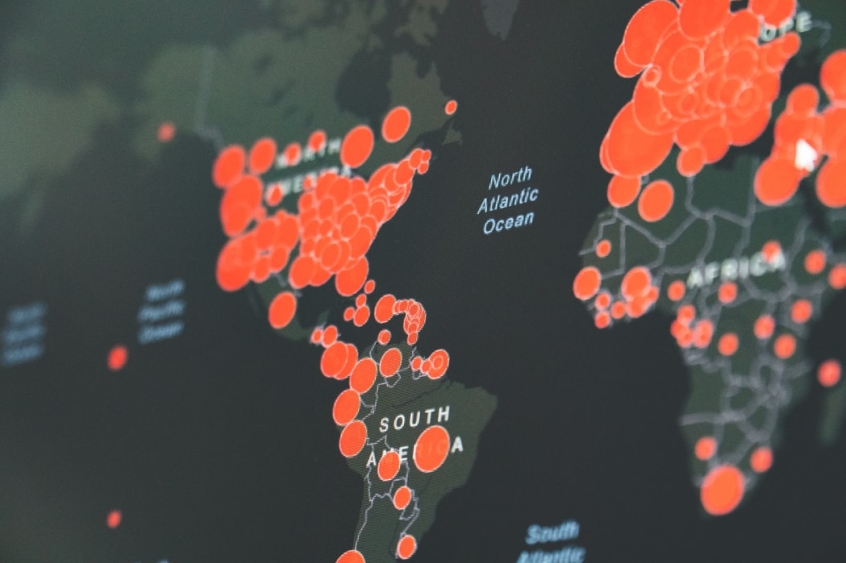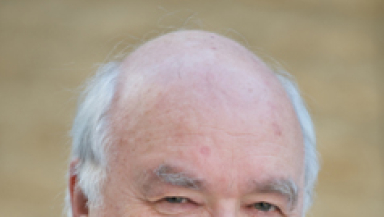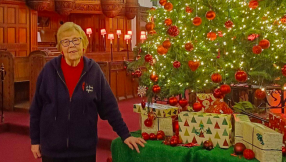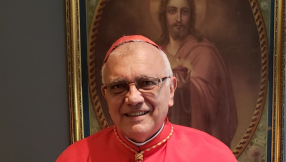
With the coronavirus pandemic causing so much uncertainty, fear and difficulty, many could be wondering: where is God?
Oxford mathematics professor John Lennox has written a short book attempting to answer that very question.
In Where is God in a Coronavirus World?, Professor Lennox seeks to move beyond the soundbites and help people make sense of why a loving God would allow something like Covid-19, and where He is in the midst of it all.
He speaks to Christian Today about his view on the pandemic and why there are no easy answers but lots of reasons to keep believing.
CT: What drove you to write a book tackling such a big question about God and the coronavirus, which is so difficult to answer?
Professor Lennox: It was the fact that I'm a mathematician and I know something about exponential growth. I could see that the virus would go round the world so fast that people were going to become very uncertain and fearful. I felt that perhaps I could make a little contribution by trying to write something to help people move beyond simplistic answers.
CT: The question that the book poses is very complex. Do you think that as Christians, we can be guilty of doing just that, looking for simplistic answers or quick soundbites rather than digging into what are really difficult subjects?
Professor Lennox: Yes. There are no easy answers because the problem of pain and evil - moral evil, the bad things that people do to each other, and natural evil, tsunamis, earthquakes and viruses - these are the hardest problems that all of us have to face whatever our worldview. We have to find our way in gradually, rather than think we're going to come up with easy one-liners.
CT: The question of suffering and pain is huge. Do you have any thoughts on why God might allow something like the coronavirus pandemic? Is it a wake-up call? Is there something God wants us to realise? Or is it something that 'just happens'?
Professor Lennox: I think it's a mixture of both. A passage in the Bible that really helps me in this is in Luke 13 where some of the crowd report to Jesus about Pilate coming with soldiers and massacring a whole group of people. That was moral evil. In His reply to them, Jesus mentions the collapse of the tower of Siloam which killed 18 people. That second event is something that just happened – although we don't know, of course, whether the collapse was due to shoddy workmanship. Jesus asked them: do you think they were sinners above all sinners? No.
So the first, very important thing to say is that tragedies like this are not evidence that the victims, whether individuals, groups or nations are necessarily worse than anybody else. The second thing is what Jesus went on to say: "But unless you repent, you too will perish." In other words, let it be a warning to you that we are mortal, all of us.
So in one sense, tragedies like this may act as a wake-up call. CS Lewis said that pain is God's "megaphone". It forces on us the realisation that we've all had it so good, or many of us have, so that we have forgotten God. Indeed the EU has written God out of the constitution. Events that involve large-scale suffering raise questions in our minds about death, eternity and meeting God. I can see that Covid-19 is doing that – online churches tend to be fuller than physical ones.
On the other hand, playing the blame game and trying to second guess why God has allowed this is another matter altogether. It is noticeable that people who do that tend to focus attention on themselves – they get accused of arrogance. It does not focus attention where it should be - on God.

CT: You talk in your book about vulnerability. What do you think that the coronavirus has revealed about humankind?
Professor Lennox: Many things. First of all, that we're mortal, we're not as strong as we thought we were and we're certainly not in control as many of us liked to think we were.
It has also shown us a good side to human behaviour. Just think of the dedication of the doctors and nurses; it's absolutely fantastic what they're doing. And Captain Tom Moore, the hundred-year-old who has raised over £28m walking around his garden. Wonderful people.
On the other side, it's shown us some of the nasty side of human nature - with some selfish people unthinkingly crowding others out of supermarkets so that, for instance, overworked, exhausted nurses are left standing weeping with frustration at not being able to get the food they need to keep on bravely helping others.
CT: Do you think it's also revealed a modern-day tendency to over-rely on science to get us out of every tight spot? We're so used to having medicine and vaccines and cures, but - at the moment - this has no vaccine or cure?
Professor Lennox: Many people certainly never thought anything like this would happen again because of the advances in medicine. In the case of Covid-19, we are very dependent on medical research. That's actually something we as Christians need to pray for – the medical staff caring for the sick and dying at considerable personal risk, and research scientists looking for a vaccine. It would be wonderful if someone like Alexander Fleming, who discovered penicillin, were to turn up and provide a cure for Covid-19 or a protection against it.
CT: This is not the first pandemic the world has faced and there have been some pretty awful ones. What is your sense of this pandemic from a scientific perspective?
Professor Lennox: Some of the pandemics that came before were much worse than this one. The Black Death in the Middle Ages may have killed half the population of Europe, and the flu pandemics maybe 20 million. We're nowhere near that – yet. We don't know if there will be second or even third waves of re-infection. Such uncertainty is de-stabilising.
CT: Christians have lived through all of the pandemics before. Do you take inspiration from that?
Professor Lennox: In some of the early plagues, like the Plague of Justinian, the Roman Emperor was amazed that the Christians looked after not only their own people but also those who didn't share their Christian faith. As we watch people working in hospitals and hospices, we should remind ourselves and others that such institutions and many others are a Christian legacy from the ancient world. We have every reason to be proud of that.
CT: Do you feel like this is a seismic or life-changing event, that the world will be a different place after this?
Professor Lennox: There will certainly be changes because it looks very much as if this is going to take a long time to sort out. We may have to be a lot more modest in our aspirations. Lockdown has already taught some of us that we can make do with less than we've enjoyed in the past. It also tells us that our medicare preparations were not adequate in this country – though they seem to have been in some others. Think of the awful situation in care homes and the ubiquitous lack of PPE (Personal Protective Equipment). The politicians certainly give me the impression that they're out of their depth and it would be refreshing if they were to admit it and tell us the truth.
CT: What would you say to a sceptic who might say 'Why pray for this? What's the point?'
Professor Lennox: When people say 'why pray, what's the point?', what I try to explain is that behind prayer is a relationship with God through Jesus Christ, a living relationship. It's that relationship that gives me hope and gives Christians something to say into the pandemic.
When we're seeing people suffering, we can tell them about a God who suffered. If Jesus really is the Son of God - which is the central Christian claim - then we can ask: what is God doing on a cross? Easter just reminded us of that. Surely at least, it's telling us that God has entered into human suffering. He understands it. And the fact that He raised Jesus from the dead changes everything because it means that there's real hope for all who trust him.
If we're prepared to face the fact that we're mortal but also that we have rebelled against God - we haven't kept our own standards, let alone His - and if we put our trust in Christ and not our merit, He is prepared to forgive us our guilt, give us peace with God, and impart to us a new life, eternal life, right now.
We humans are mortal. We shall all die, whether it's in a car accident or cancer or this pandemic. However, the hope that Christ brings to those who receive him as Lord transcends death. Covid-19 can't ultimately touch the relationship with God that trust in Christ brings with it.
People say 'why pray?' but they talk to their friends all the time. God is the greatest friend who walks with us through the valley of the shadow of death and so prayer is that conversation with God that all of us can engage in, however lonely and shut-in we are. In times like this, that is a marvellous privilege.













